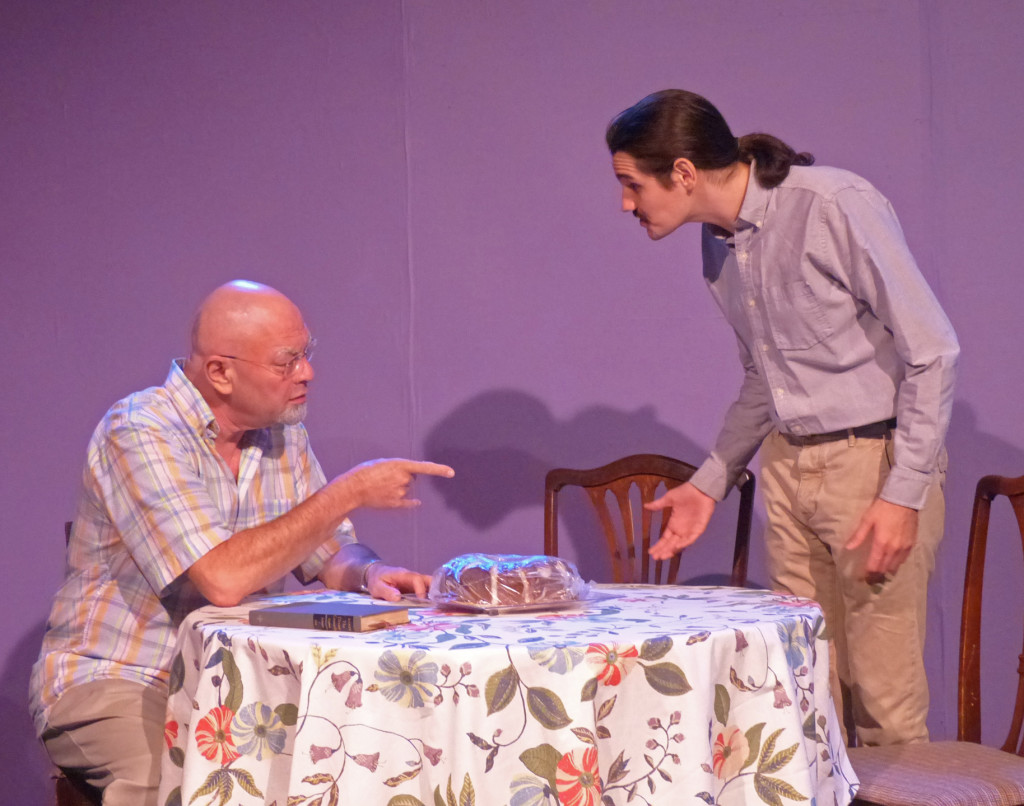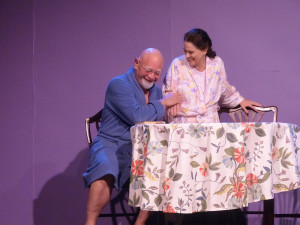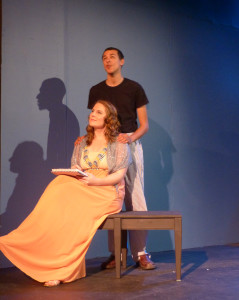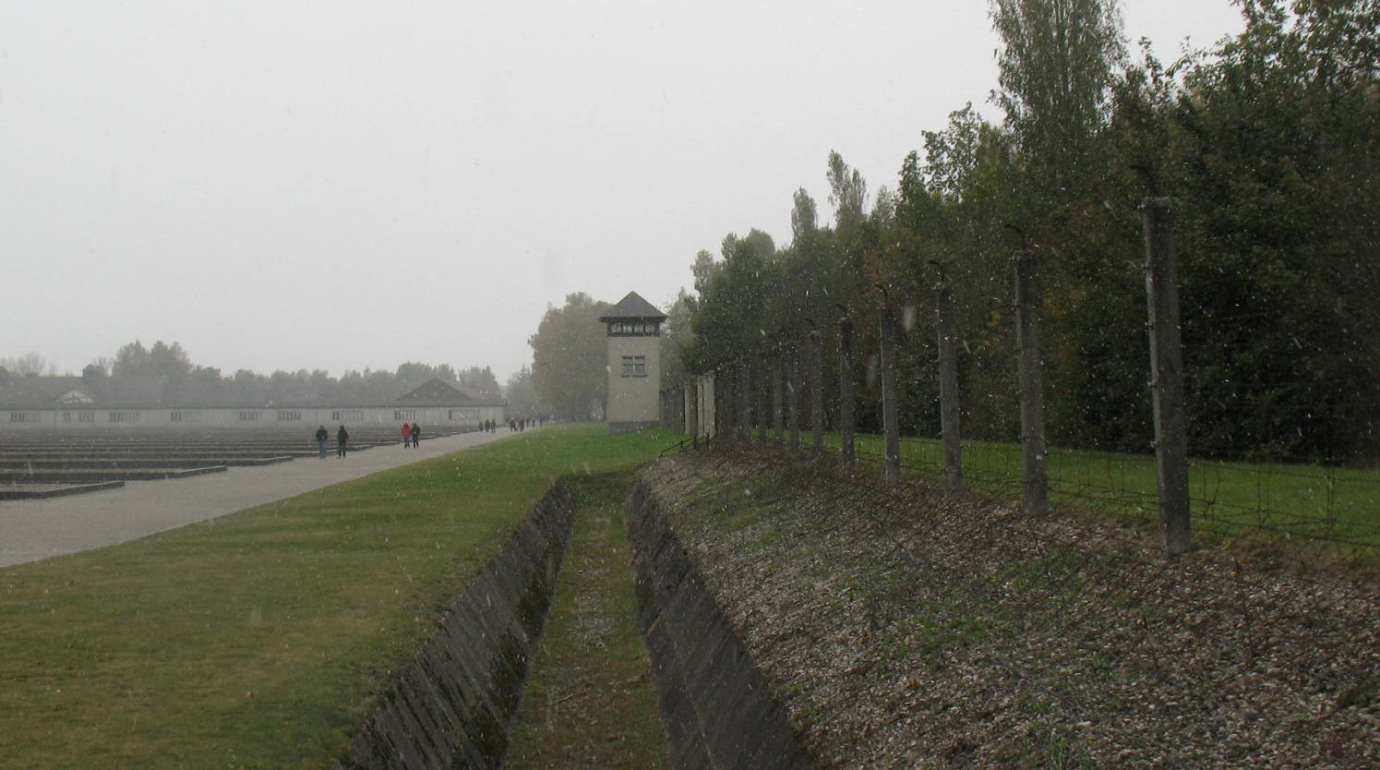Children are history moving forward. History is but words on a page. A brilliant and poignant message layered into the finely honed theatrical drama written by Baltimore area playwright Rosemary Frisino Toohey, Under the Poplar Trees makes its Baltimore debut as a part of the Baltimore Playwrights’ Festival 2014 at the Fells Point Corner Theatre. An intensely compelling and evocative tale of life focused through the lens of struggling to survive in Dachau— the first Nazi concentration camp— this play is a startling gem; a true testament that engaging ideas are still being produced in the world of theatre. Balanced with levity and hope against enormous sorrow and agony, Toohey has written the perfect play; a masterpiece with vision.
Director Miriam Bazensky approaches the piece with a myopic focus on the story; a necessary means to drawing forth the poignancy and emotional depth from the exceptional writing put forth by Toohey. Bazensky keeps the set simplistic, allowing for scenes of memory, scenes of dream, and scenes of reality to drift in and out without pause or overburdened set changes. This enables the actors to focus on the story they tell; a truly raw and evocative tale that stirs intense oceans emotions to the surface of the audiences’ conscious.

The acting is as impressive as the play itself; a rarity in new works of theatre. Each person fits their part, understands the layered meanings worked into the depth of the script, and executes their roles with determination and dedication. Even the smaller parts like that of Desiree (Beth Amann) and Clara (Annette Mooney Wasno) find a divine fit into this production. Amann serves as an ephemeral foil of sorts to Josef; existing only in a dreamlike limbo that leaves her existence open for conjecture. Her mild but teasing nature flows naturally and makes the scenes between her character and Josef’s character intriguing with just the faintest hint of titillation.
Wasno’s character runs the risk of becoming an overly dramatic caricature, but her keen sense of balance prevents that from happening with the Jewish grandma. Wasno’s approach to the character’s accent creates an authenticity within her; the pauses and inflections in her voice when needling at Aaron to eat more, the way she nags lovingly at her husband Meyer; all representing the positive minutia of a stereotypical bubbe.

Young Meyer (Karim Zelenka) and Josef (Justin Johnson) are where the true harrowing moments of the play strike through in force. Toohey’s crafting of these two characters could not be more dynamically opposite. Johnson is entrusted with being a ray of hope shining through the dreary dirge that has become life inside the camp fence while Zelenka is fitted with a pessimistically focused case of realism. Johnson’s performance is sensational. Their moments together during the roll-call scene are harrowing and chill you to the core to witness. But it is Johnson’s effervescence that resonates through his entire performance that continues to illuminate his internal optimism. Johnson is a radiant beam of luminescent spirit that shines with reflective hope until the very end; a thoroughly stunning and awe-inspiring performance.

The play has a brief run and should not be missed; it’s the most evocative work that has been presented as a part of the BPF in quite some time.
Running Time: Approximately 2 hours with one intermission
Under the Poplar Trees plays as a part of the Baltimore Playwrights Festival through August 31, 2014 at the Fells Point Corner Theatre— 251 S. Ann Street in historic Fells Point of Baltimore, MD. For tickets call the box office at 410-276-7837 or purchase them online.

